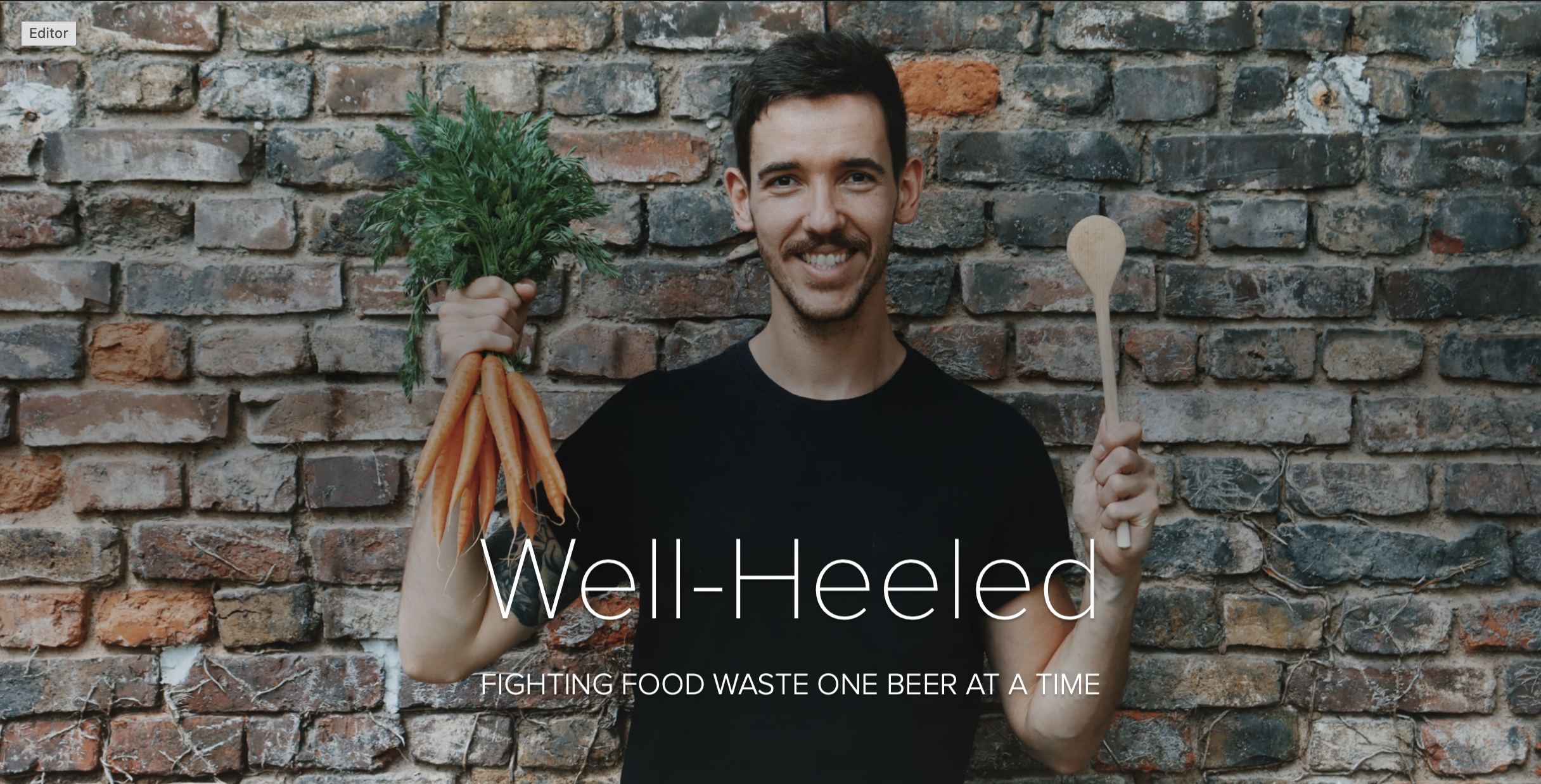View this story on Adobe Express
By Sam Parnis
On April 4th The George Washington University’s Center for International Business Education and Research (GW-CIBER) welcomed German-based entrepreneur Daniel Anthes to campus. Anthes is a self-proclaimed “sustainability ninja,” who has been speaking for 7 years around the world about how humans produce, buy, sell, and eat food.
For Anthes, sustainability is fun. “We need to reform [sustainability] to make it more sexy and get more people on the sustainable track in life,” he said.
Anthes studied at Johannes Gutenberg University Mainz and earned a degree in economic geography in 2013. After 6 years of serving as a board member of ShoutOutLoud, an NGO focused on sustainability in Europe, he started his own organization to make a difference.
As Founder and the Chief Food Lover of the green start-up Knärzje, a German word for the beginning or end edge piece of bread that is usually discarded, Anthes’ company was created to take food waste and turn it into tasty new foods. The end piece of bread holds so much cultural significance in Germany that over 200 different terms across the country describe it. When discarded pieces of bread no longer have value in the marketplace, Knärzje uses them to create their beer, whose slogan, “0 waste 100% taste” is printed on the front of their bottles.
Reducing food waste isn't just about addressing immediate needs like hunger and conserving resources, explained GW’s Margaret Gonglewski, Associate Professor of German and International Affairs, who hosted Anthes at GW. It also sparks innovation across the entire food system, ranging from agriculture and production to technology.
Gonglewski and Anne Helm, teaching associate professor of international business and director of GW’s Center for International Business Education and Research (GW-CIBER), traveled to Germany for two weeks last summer to interview green startups, and wrote a case study about Knärzje’s desire to scale up.
Creative problem-solving can lead to groundbreaking products, processes, and technologies with benefits for everyone, Gonglewski explained, adding that "Dan's innovative brewing method, using food scraps that would normally be discarded, perfectly exemplifies this. It's a win-win for sustainability and delicious beer, inspiring others in the industry to adopt similar practices."
Anthes established Knärzje to reduce waste, encourage companies to strive for zero waste production, and actively fight against plastic and waste. During his presentation at GW, he said, “I have been [in the United States] for two days, and have produced the amount of plastic waste from an entire year in Germany.”
Over half of the global food systems' CO2 emissions come from food waste, our world has reached a point of abundance of food because food has become so cheap. If food waste was a country it would be the 3rd largest producer of CO2 emissions behind the United States and China. This food waste country would produce four times the amount of emissions coming from Germany each year. In Germany over 40% of all food produced ends up as waste, over 600,000 tons of this waste comes just from local small bakeries.
A key point in Anthes' April 4th presentation was that “it makes absolutely no sense to throw away food, not economically, not ecologically, and not ethically.” This belief is what drives Anthes, and Knärzje, to do better and to promote this work to the German market and the world.
In 2023, The German Brand Award named Knärzje the sustainable brand of the year. Their commitment to sustainability is evident; the company has climate-neutral brewing practices, a commitment to zero waste, and produced and sold less than 80 kilometers away from where it is made in Germany.
Knärzje is gaining traction in the German market and earned them a spotlight on a Shark Tank style Germany television program. They’ve even launched an ad campaign across Germany’s federal railway station and the brand has become the exclusive beer distributor for these federal trains. They also have a food truck that goes to events and music festivals and signed a deal with Kaufland, the largest grocery retail chain in the county.
Anthes believes the quick success of Knärzje mainly comes from targeting the younger population. “People want to eat healthier, cheaper, and more sustainably,” he said.
By addressing the challenges of the here and now, Knärzje has found its spot in the marketplace.




